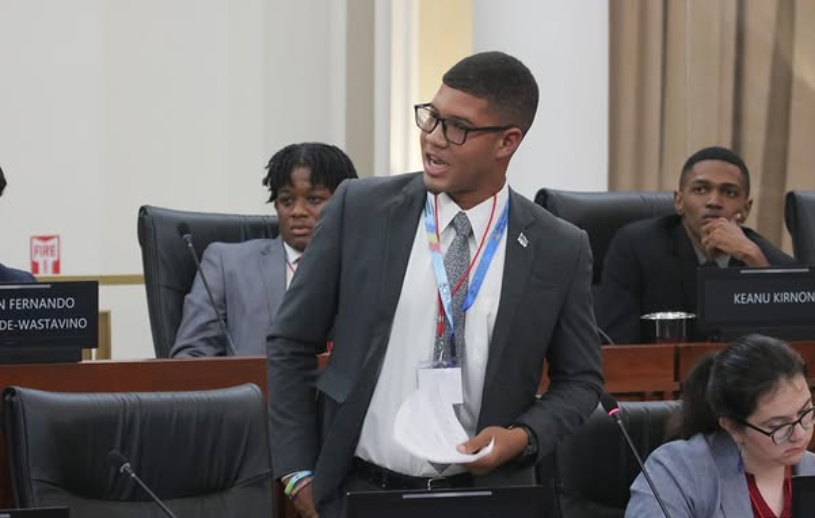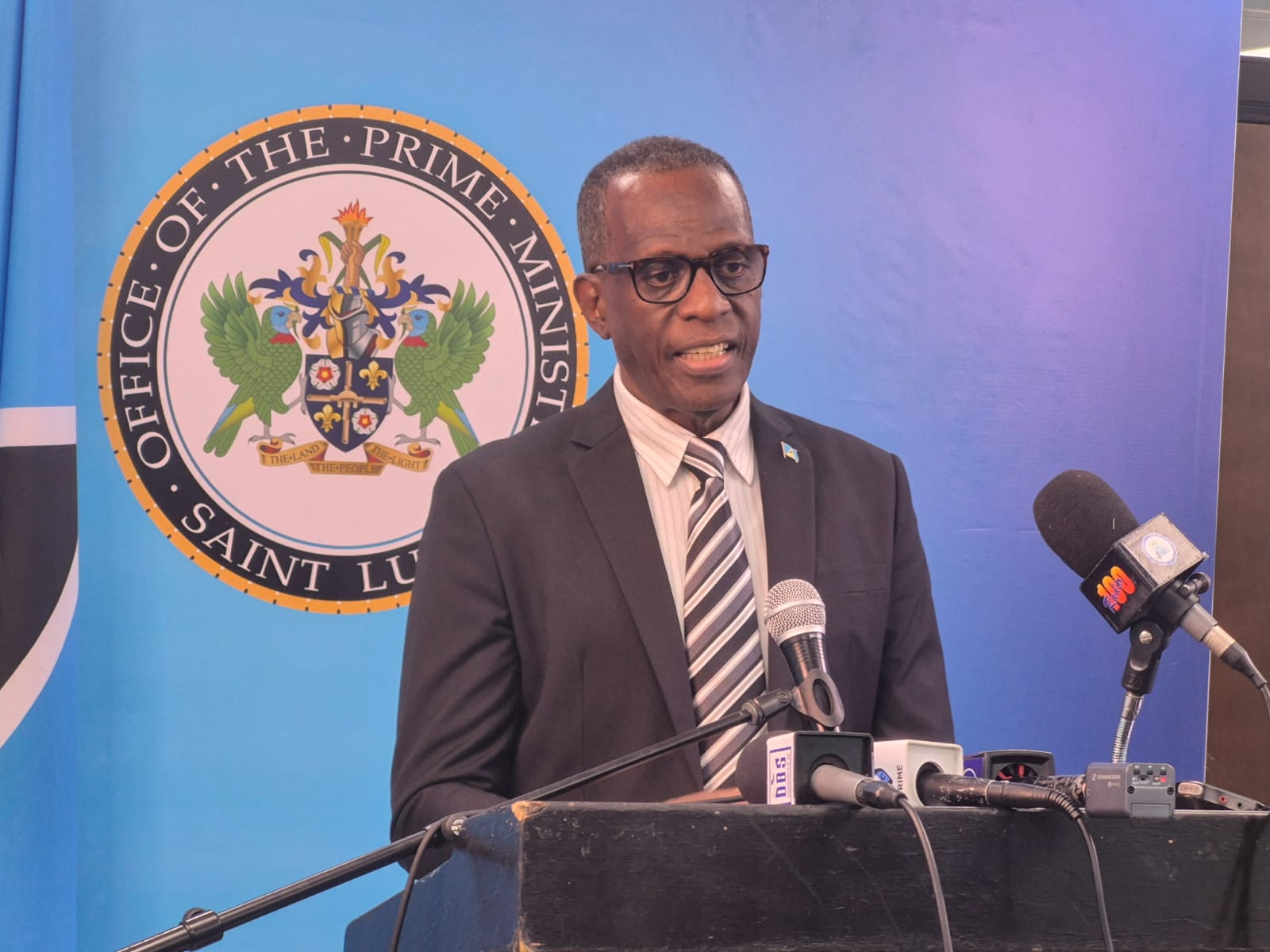

By Alens Plante
Arguably, Saint Lucians pay most attention to the ringing of three bells: Holy Matrimony—the celebration where two become one; Christmas—the celebration of the birth of Jesus Christ; and, of course, general elections, known to many as the ‘silly season.’ There is no doubt that the latter will soon ring. Election machinery has been set in motion as the constitutionally due election of 2026 draws night.
The United Workers Party (UWP) and the incumbent Saint Lucia Labour Party (SLP) have both stepped up their preparations—the SLP with their weekly town hall meetings where they actively highlight their successes, and the UWP working to recover from its 2021 electoral defeat. In recent developments, the UWP has announced most of its candidates for the next general election. Both parties are looking to put their best case forward to the electorate, who will soon seal their fate. At this point, the question arises: How would a second term for the SLP benefit Saint Lucia, and what must the UWP do to topple the SLP’s super-majority?
Acts of corruption continue to hinder governance in many countries across the globe. The SLP has long campaigned on the issue of eliminating corruption from government systems. They promised an overhaul by creating the Office of the Special Prosecutor, responsible for investigating and prosecuting corruption among public officials. This move reassured many and significantly boosted confidence in Philip J. Pierre and his administration. Fulfilling the SLP’s promise, the Special Prosecutor Act of 2022 was passed, resulting in the appointment of esteemed jurist Robert Innocent.
Many Saint Lucians have bemoaned that corrupt individuals act with impunity and long to see those who engage in or enable corruption held accountable. If the SLP is to regain the seats of the legislature on Laborie Street, there must be persistent and tangible action to ensure that corruption does not permeate the precincts of governance.
Integrity in governance is key, and Transparency International offers a methodological framework to shield public institutions from corruption and strengthen national integrity systems. This framework encourages all bodies of the state to work together to eradicate corrupt practices. The SLP could consider this pragmatic approach in strengthening its anti-corruption efforts.
The prolonged St Jude Hospital Reconstruction Project remains a case where integrity and accountability of public officials are central to many partisan discussions in Saint Lucia. The hospital’s fate remains a pressing matter for voters. September 9, 2009, is etched in the minds of every Saint Lucian who witnessed the towering flames that engulfed the island’s main hospital in the south. Construction of a new facility began under Stephenson King’s administration, but the St Jude Hospital has since become a political football, and, almost 16 years later, it remains unfinished.
The Pierre administration promised completion, which now seems imminent, according to the contractor. Many contend that delivering on this promise will be a key issue in the election. Despite opposition criticism on this and other matters, the SLP leader continues to enjoy strong support from his party, which hopes this confidence extends to the wider electorate.
The UWP continues to struggle since its crushing 2021 defeat. Many political analysts offer different views on what may have put the nail in the coffin of the party of Saint Lucia’s Father of Independence, Sir John Compton. The 2021 election dealt a historic blow to the UWP, as its last bastion, Micoud North, switched allegiances for the first time since Saint Lucia’s 1979 independence. A shocking defeat, this triggered calls for the resignation of then Prime Minister and party leader, Allen Chastanet.
Most may argue that the state of peril in which the UWP has found itself was quite foreseeable after the sudden departure of longtime MP and former Prime Minister, Stephenson King, who, in a national address, declared that he could no longer identify with the party’s direction as it had pivoted from its founding principles. The support of Lady Janice Compton, widow of Sir John Compton, and her family for political novice Jeremiah Norbert also boosted the SLP. Following the elections, the UWP saw the resignation of its Chairman Pinkley Francis, who asserted that he “needed more time to focus on his entrepreneurial ventures”. In another shocking turn, the then Speaker of the House of Assembly, Andy Daniel, resigned with immediate effect, saying, “In recent times, I have seen the eroding of [the mission and vision] within our party structure and the general acceptance of a new ethos.” He added, “Our aim to be the preferred political party of Saint Lucia and regaining the seat of power from the Saint Lucia Labour Party should never be achieved by sacrificing our fundamental principles and beliefs. This new approach I disagree with.” Daniel was not the only UWP supporter who shared those views. Many other staunch supporters, such as Yasmine Steele and Pearl Alcindor, alluded to what Daniel mentioned prior to the general elections.
On July 26, Saint Lucia ushered in a new legislative era, with the SLP and independent candidates sweeping 15 of the parliament’s 17 seats—a clear sign of dissatisfaction with the former government.
To this day, the UWP continues to experience major internal conflicts and struggles to regain stability. It continues to encounter much pressure in the court of public opinion. Recent developments have seen further scrutiny over the party’s slate of candidates and an alleged flawed selection process.
The UWP must undertake serious introspection if it hopes to chart the way forward into 2026. Unseating the SLP will be a Herculean task. Strong leadership will be crucial in restoring public confidence—if it can be restored at all.
Saint Lucia’s general elections must be held no later than 90 days after the fifth anniversary of a government’s term, under the Constitution. While the prime minister reserves the right to notify the Governor General to dissolve Parliament and ring the election bell, the opposition must be prepared at all times. For them, the biblical warning—”you do not know the day or the hour”—is quite applicable.
Since 2006, national elections in Saint Lucia have swung between the two major parties. The current political atmosphere does not suggest a change of current government is imminent, but the ultimate decision lies in the hands of the people of Saint Lucia. Each party is tasked with securing the national trust of Saint Lucia. The political harvest has begun, and may the fruits of the election be fruitful for the nation’s future.
Alens Plante is a 29-year-old Saint Lucian student at the University of the West Indies, Cave Hill Campus, who has spent much of his life in student advocacy and activism.





